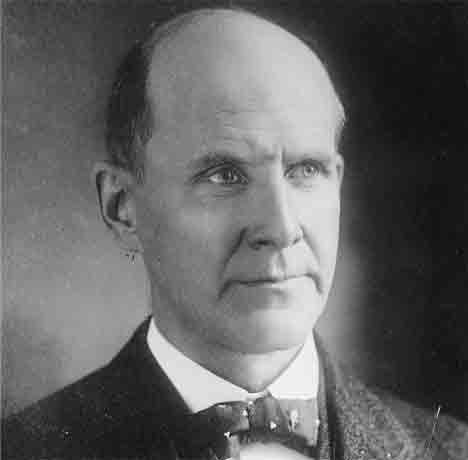As the summer season wraps up in early September, Labor Day becomes a significant celebration for both garage door repair technicians in Orange County and workers nationwide. While it serves as a time to appreciate the hard work and essential contributions of the American workforce, its true history might not be fully understood by those participating in the festivities.
The establishment of Labor Day involves controversial figures, including labor organizers with socialist views and communist ties. Let’s explore the origins of Labor Day for a better understanding of its significance and how it came to be.
The History of Labor Day
Many of us see Labor Day as the unofficial end of summer, celebrated on the first Monday in September. This marks the return of students to school and the anticipation of cooler weather. Retailers offer sales and discounts on various items, from big-ticket appliances and vehicles to garage doors. Towns host parades, and people barbecue in their backyards. However, the true essence of celebrating Labor Day goes beyond the end of summer or enticing sales deals. This day is dedicated to acknowledging the hard work and numerous accomplishments of the American worker, including garage door repairmen.
Labor Day originated in the 1880s when workers endured harsh conditions and challenging environments with minimal protection. The industrial revolution had heightened the demand for labor, leading individuals to work long hours, often seven days a week. It was not uncommon for workers to toil through 12-hour shifts in dirty and unsafe conditions for meager pay. The absence of restrictions and limitations on employers left workers with little choice but to accept these terms if they wanted to make a living and provide for their families.
The harsh working environment led to the creation of labor unions in the United States, as highlighted by History.com, and workers joined forces to express their discontent. Labor unions, also referred to as “big labor” in major cities, organized protest strikes in an effort to compel employers into establishing better working conditions. Perhaps unsurprisingly, some of these protests turned violent, including the Pullman Railway Strike and the Haymarket Riot in Chicago, which was planned by the American Railway Union and labor leader Eugene Debs.
The Pullman Strike affected railway movement in the Midwest in June and July of 1894. Before the strike, workers faced 16-hour workdays, low wages, and poor conditions. An economic depression led to wage cuts, while workers’ rent costs stayed the same, similar to modern-day inflation. The workers tried to discuss their concerns with George Pullman, the company’s owner. Instead of meeting with them, he chose to fire them. In response, the workers decided to strike, and on May 11th, 1894, they left the factory.
Over the following weeks, the strike continued to grow and spread to other workers. The anger among them escalated, culminating in violence on June 29th in Illinois. Consequently, the federal government ordered an injunction and deployed federal troops to Chicago to quell the violence and restore order. Rioting strikers caused damage to railway cars, and the violent clashes resulted in casualties when National Guardsmen fired into an enraged mob.
About Eugene Debs
Eugene V. Debs was born in 1855 and raised in Terre Haute, Indiana, a small city in the Midwest where his immigrant parents ran a grocery store. Debs began his political career in 1875 when an election elevated him to the position of secretary for the Terre Haute lodge of the Brotherhood of Locomotive Firemen. He then transitioned into politics, initially serving as Democratic City Clerk in 1879 and later in the Indiana State Assembly in 1885.

By 1893, Debs had initiated the organization of the American Railway Union, dedicated to advocating for the country’s railroad workers. The Pullman strike in 1894 marked a turning point in his thinking, prompting Debs to shift towards more socialist beliefs. He believed that unions would persistently struggle against the dominance of capitalism, and socialism provided a more viable solution to address the challenges faced by working people.
For 20 years, Eugene Debs served as the standard-bearer for the Socialist Party, participating in five presidential elections between 1900 and 1920. Throughout this period, he remained actively involved in organizing, delivering speeches across the country, and supporting workers’ strikes. Ultimately, it was one of his speeches that led to his imprisonment.
Speaking out against the First World War, Eugene Debs was labeled “a traitor to his country” by President Woodrow Wilson. Following his speech in Canton, Ohio, where he encouraged people to resist the draft, Debs was arrested. Charged with sedition, he was found guilty of violating the Espionage Act of 1917, and received a 10-year prison sentence. After serving time in a federal penitentiary, President Warren G. Harding commuted Debs’ sentence in 1921.
Huntington Beach Silenced Eugene Debs After Labor Day
As Huntington Beach aspired to establish itself as the workers’ capital of Orange County in the early 1920s, the town planned a grand celebration for Labor Day in 1923, with the intention of attracting thousands of workers to the area. The event was intended to honor workers and commemorate the opening of Ocean Boulevard, creating high anticipation for what was expected to be a historically significant occasion.
Eugene Debs, who had been released from prison, was invited to speak at the event by the Huntington Beach Oil Workers Union. The union applied for a permit for the municipal auditorium, hoping Debs could address the audience. However, their request was denied by the Huntington Beach City Council, with the backing of several local civic groups, ultimately silencing Debs.
Labor Day Holiday Becomes Official
The U.S. Department of Labor notes that individual states recognized the Labor Day holiday before it became federal, with Oregon leading in February 1887. On June 28th, 1894, President Grover Cleveland finally signed it into law. However, its nationalization wasn’t without controversy. The bill for the federal holiday had been stagnant for years, and there were hopes to mark May 1st as the official Labor Day. Socialists and communists within the labor movement wanted to celebrate International Worker’s Day (May Day), commemorating the working class and the Haymarket Riot in Chicago.
Labor Day and Contemporary Ironies
Labor Day in the United States is not inherently linked to socialism, but its origins are firmly rooted in the labor movement and the struggles of workers, with influence from socialist ideologies backed by figures like Eugene Debs and various leaders within labor unions. Established to acknowledge and appreciate the contributions of workers, the holiday traces its roots back to the late 19th century, emerging in response to inadequate working conditions and the collective quest for improved standard of living.
Despite ongoing policy initiatives aimed at addressing economic inequality and improving working conditions, both the US government and governments worldwide contribute to the impoverishment of the working class and the rise in the cost of living through currency inflation. This inflation not only diminishes the savings of individuals but also erodes the purchasing power of workers, ultimately leading to increased poverty and lower living standard – contrary to some of the ideals represented by Labor Day.







